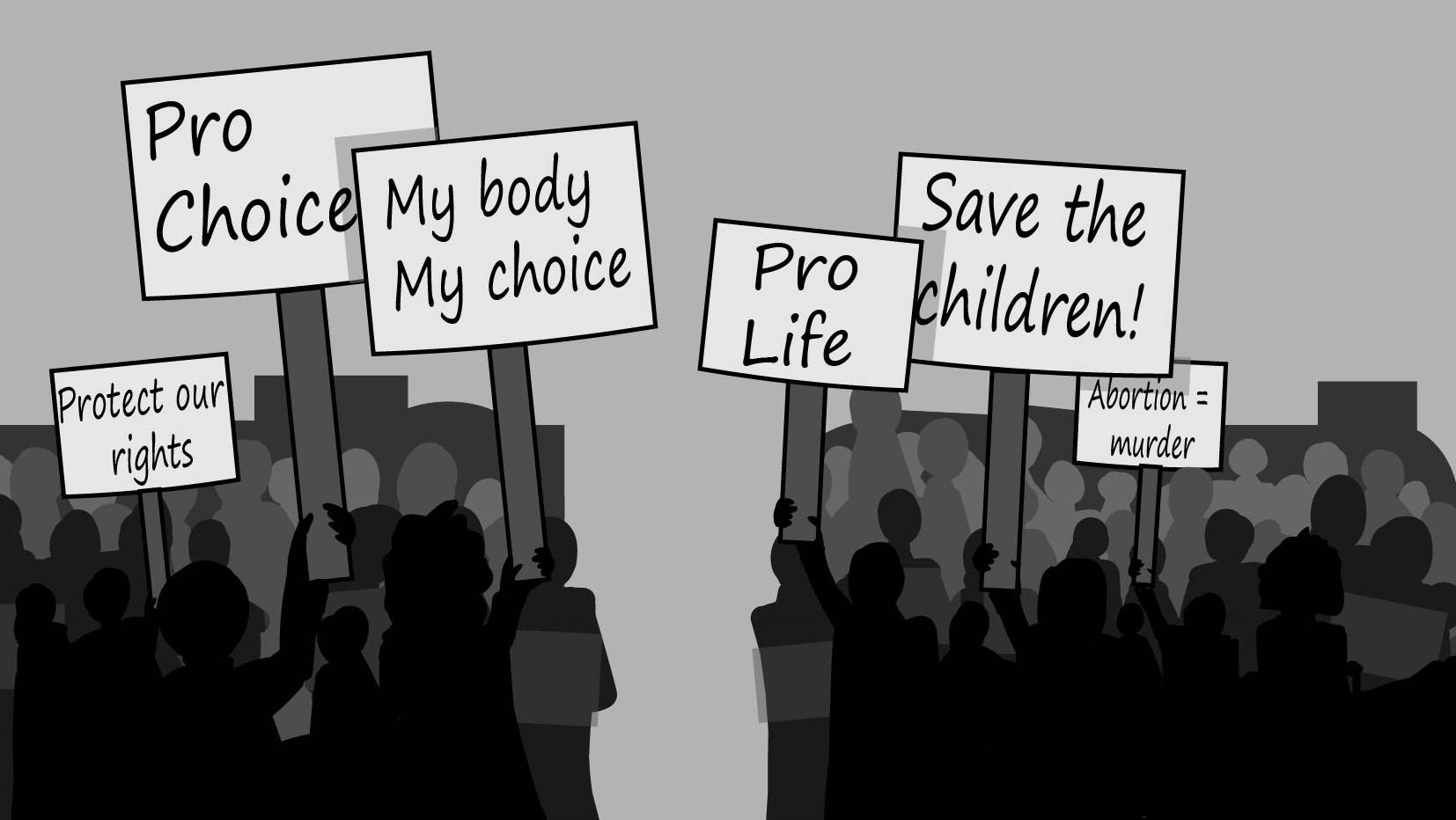GW’s D.C. location inspires activism and change. It is easy to get caught up in movements to fight for your beliefs, but students should choose their battles wisely.
Late last month, three evangelists entered campus grounds armed with megaphones and sky-high posters demanding that people repent for their sins and worship God. I laughed a bit as I walked past them outside Thurston Hall on my way to class. I texted my friends about it, and it immediately left my mind. I did not even remember that the protesters were on campus until they were met with a blockade of angry GW students in between Kogan Plaza and District House. Some stood in the face of the man speaking into a megaphone and argued with him directly while he continued to speak to the crowd around him instead of the individuals calling his attention.
A couple of weeks later, I walked out of class to Christian protesters in Kogan Plaza. I was irritated at the impromptu demonstration, but I was more annoyed that I could not move past the protest without a microphone blasting in my ears. Their demonstration seemed unremarkable to me, if not for the crowd of students who formed around them and yelled back at them. Instead of taking an alternate route to my residence hall, I stopped and watched the show. Again, the counter-protesters shouted at men who did not seem to listen to the outraged students yelling in their ears.
These students devalued their own opinions by lending themselves to deaf ears. They should have turned away the moment they realized the preacher was not willing to entertain a dialogue about religion, but they stayed.

Hannah Thacker | Cartoonist
If I disagree with a brick wall, I will find a way to move past it instead of hoping that it will bend to me. This is not cowardice, this is self preservation. I know what is and is not worthy of my time to discuss. Counter-protesting is not an effective tool to change minds – it only gives the original protesters the attention they want.
I was raised in a Catholic household, but like many others was pushed away from the church because of beliefs that I felt were alienating or conflicted with my own. Having heard my fair share of fire and brimstone for countless Sundays, these priests were not a shock to me. I have made peace with my relationship with the Catholic Church, which, unfortunately for these preachers, means their actions do not matter to me in the slightest.
The recently popularized phrase “OK boomer” explains this attitude perfectly. Many older generations are so set in their ways that it is emotionally taxing to explain your own perspective to them. Every political discussion seems like you are put on trial to justify your opinions – unless you let it all go and realize that you do not have to prove yourself to anyone. If someone really wants to understand your opinion, they can put in the effort to look it up themselves. A street altercation is not meant to understand the other side, it is a call for attention and an invitation to fight. One demonstrator even admitted that they enjoyed protesting at GW because students pay attention to them and engage with them more than at other schools. But students should not waste their limited time and energy inciting disagreements and discussions that go nowhere – it is not activism, it is a waste of their time and emotion.
These missionaries are not, nor will they be, the last to attempt to spark controversy on campus grounds. But the difference between the evangelists and an organized protest that directly threatens students is that they had no clear mission statement. These men were seeking attention, and what students gave them was attention.
Students should think more carefully the next time they empower another desperate voice on the street.
Nicole Caracappa, a freshman majoring in archaeology, is an opinions writer.


